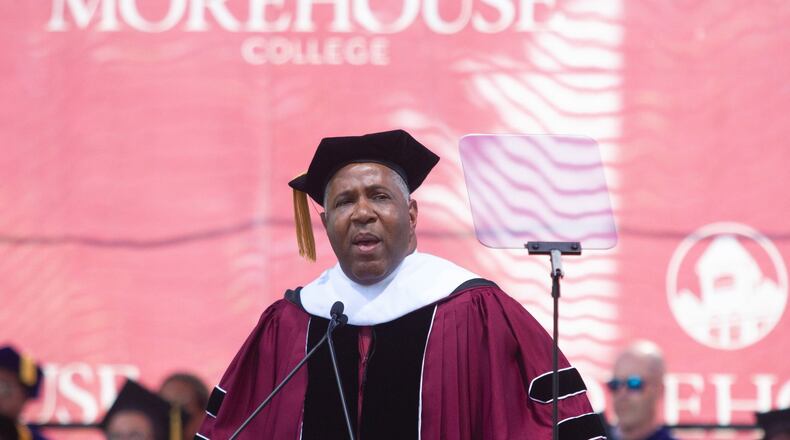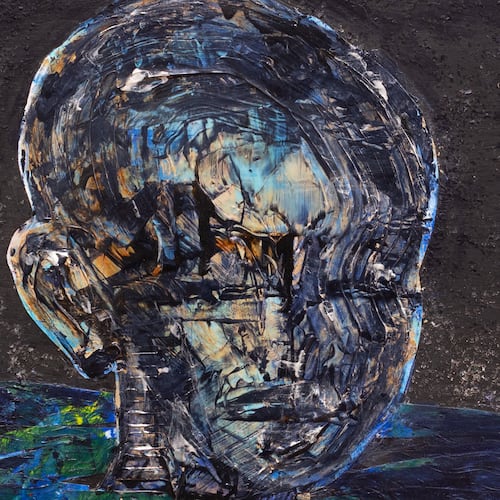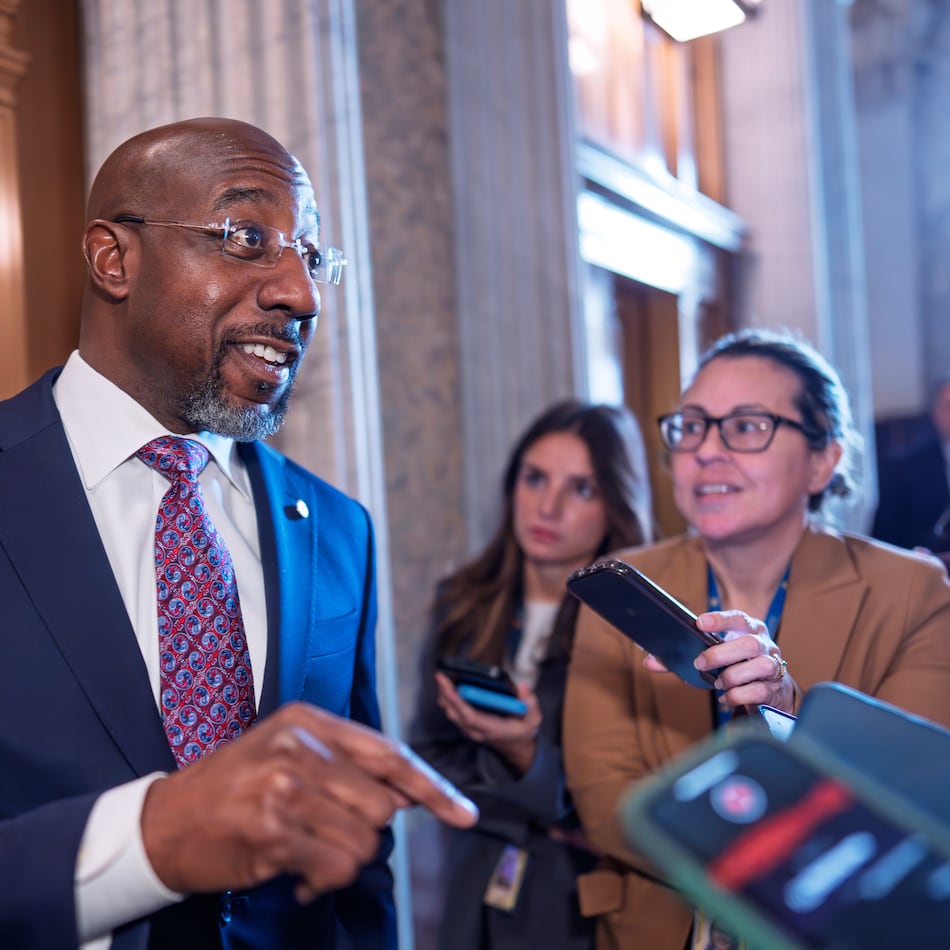Even if you weren’t lucky enough to graduate from Morehouse College last Sunday, none of us is likely to forget billionaire Robert F. Smith anytime soon.
At the end of his commencement address, Smith stunned the college’s 2019 graduating class, pledging to pay off their student debt.
In case you didnt’t know, Smith is the founder of Vista Equity Partners and the richest black man in America. He can afford it, but so can a lot of other African Americans.
Morehouse President David A. Thomas knows that and hopes Smith’s donation will inspire others in the African American community to make similar donations.
“We have people in our community with significant wealth,” Thomas told radio host Joe Madison hours after Smith made the pledge. “If we look at how many HBCUs, for example, are struggling, I think you could make a case that our community, those of us with means have not prioritized supporting them, because many of them should not be struggling the way that they’re struggling.”
RELATED | A campaign to sustain historically black colleges
Imagine the huge difference it would make if those of us with means made the effort to help struggling black students everywhere.
Student loan debt is no joke. My oldest, who will graduate from medical school in a few weeks, is facing $200,000. The most she’ll likely make during her residency? About $60,000.
Just in the past decade, student loan debt has doubled.
And while some institutions have responded to the debt crisis by reducing or eliminating tuition, others just keep piling it on, raising tuition through the roof and pricing a good many of us out altogether. When I read recently that New York University School of Medicine would be free for current and future students, compliments of Home Depot co-founder Kenneth Langone and his wife, Elaine, I just about fainted. Not a lot of things make me feel envy, but that made dark brown me green all over.
And don’t even start with that loan forgiveness talk. We’ve been digging into that. If the programs aren’t tailored to a particular category — students who take jobs in public service like medicine and have federal versus private loans — they apply only after years of uninterrupted repayment.
If the promises of forgiveness haven’t stalled altogether, there’s plenty of doubt about whether the federal government will make good on them.
We’re waiting now to hear from the experts, but it doesn’t look promising.
RELATED | Morehouse commencement speaker to pay off Class of 2019’s student loans
Either way, this class of Morehouse students don’t have to concern themselves about it. Thanks, of course, to Smith and his family.
Smith’s gift came, however, with an attachment.
“Let’s make sure every class has the same opportunity going forward, because we are enough to take care of our own community,” he said. “We are enough to ensure we have all of the opportunities of the American dream, and we will show it to each other through our actions and through our words and through our deeds.”
Smith made that statement knowing there aren’t that many billionaires in the African American community. He’s one of only 13 in the world.
But you don’t have to be a billionaire to help. I think now of Oseola McCarty, the Mississippi washerwoman who in 1995 gave away her life’s savings — $150,000 — to the University of Southern Mississippi, my alma mater.
Had it not been for her gift, none of us, perhaps, would have ever heard of McCarty or her selflessness, and certainly not in such a public way.
RELATED | Many hope surprise Morehouse gift has ripple effect for other colleges
I have no doubt she would’ve gone to her grave in 1999 without a mention.
You won’t find many obits about uneducated black women who wash and iron other people’s clothes for a living in these pages.
And yet McCarty’s story was so moving 600 people were inspired to add to her gift, giving as much as $300,000 more. Her story also prompted Ted Turner to donate a billion to the United Nations.
People all over this country give of their time and money to institutions and causes.
According to Charity Navigator, $410.02 billion was donated to charities in 2017, with the largest source coming from individuals at $286.65 billion, or 70% of total giving; followed by foundations ($66.9 billion/16%), bequests ($35.70 billion/9%), and corporations ($20.77 billion/5%).
Although the exact amount of Smith’s gift to the 369 Morehouse grads is still being calculated, Thomas has said the figure will likely be in the tens of millions of dollars.
Clearly Smith has a lot of money. So does Oprah Winfrey, who by the way, surprised a New Jersey high school two days earlier with a pizza party — and a $500,000 donation to an after-school program called Lights On.
The program gives kids a safe place to gather on Friday nights, play basketball and video games, shoot pool and work on cheers until 11 p.m. It also will run three nights a week over the summer.
In the hours following Smith’s gift, one student after the other came forward to express their gratitude, promising to honor Smith’s kindness by paying it forward.
Let’s hope it’s a promise kept.
Find Gracie on Facebook (www.facebook.com/graciestaplesajc/) and Twitter (@GStaples_AJC) or email her at gstaples@ajc.com.
About the Author
Keep Reading
The Latest
Featured




